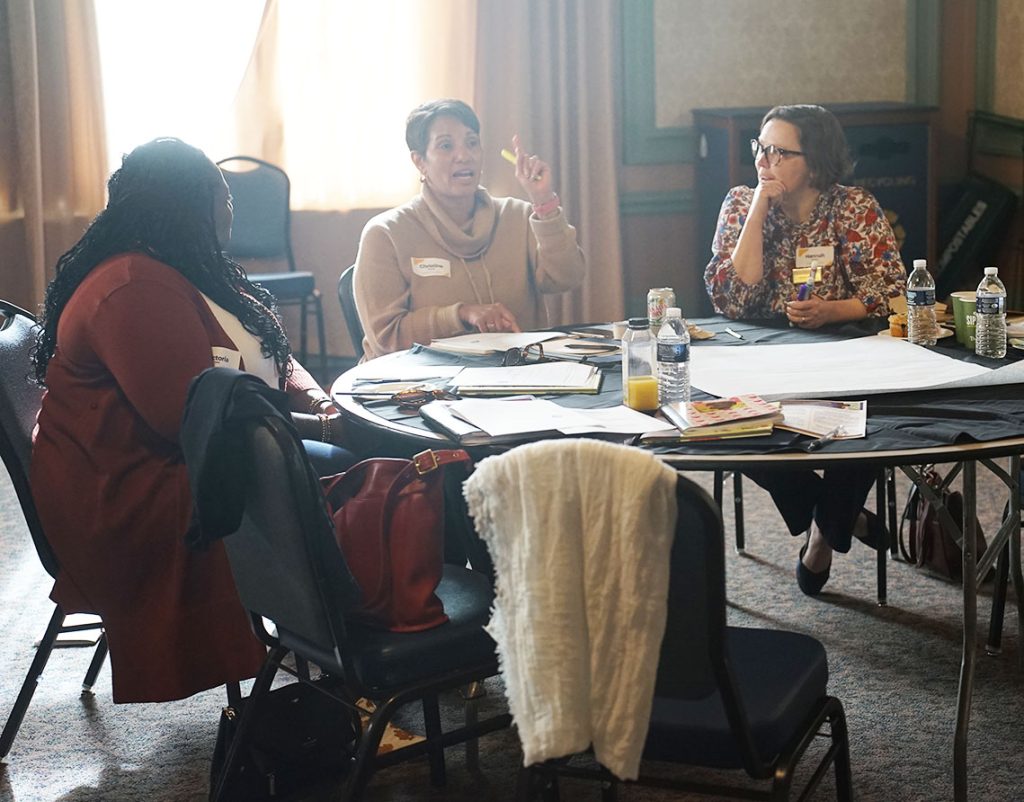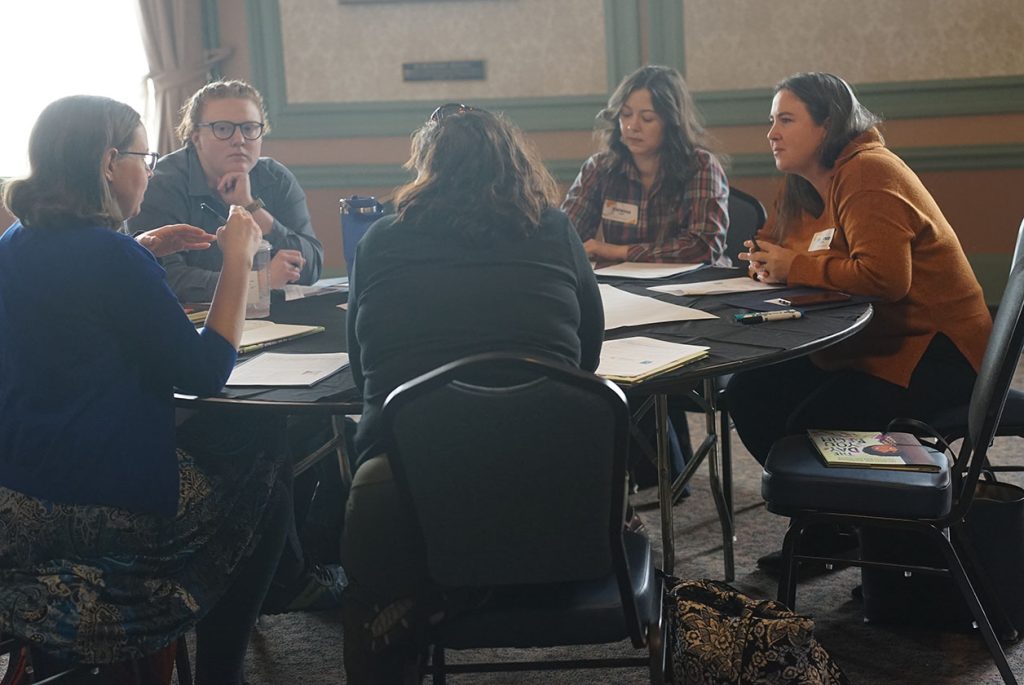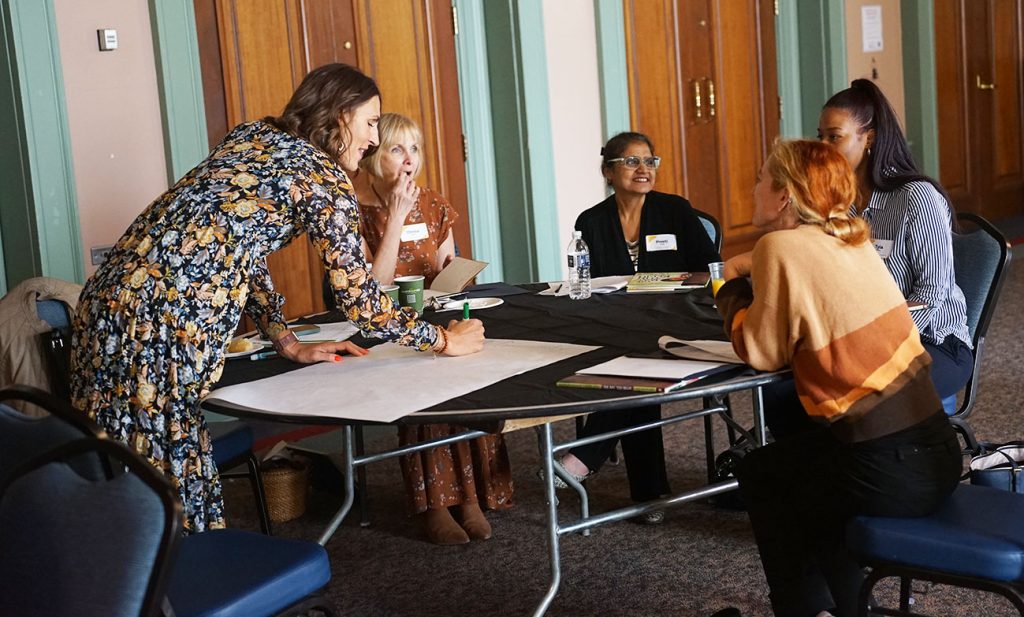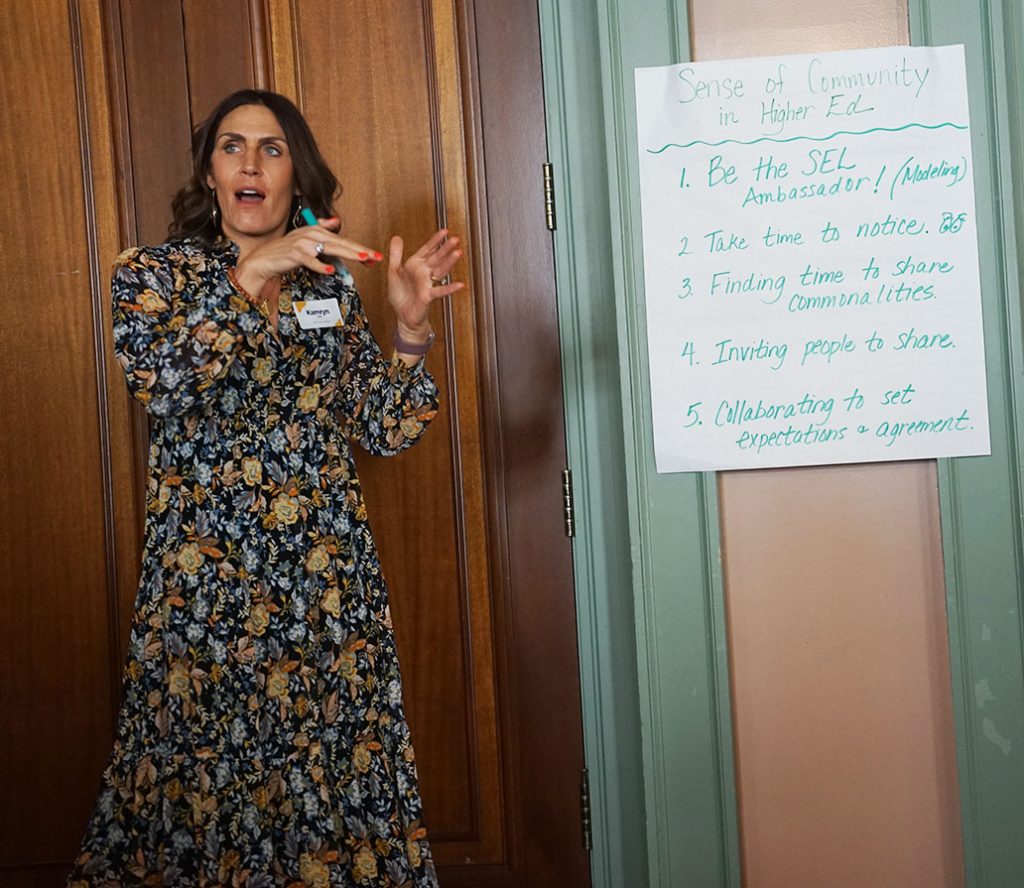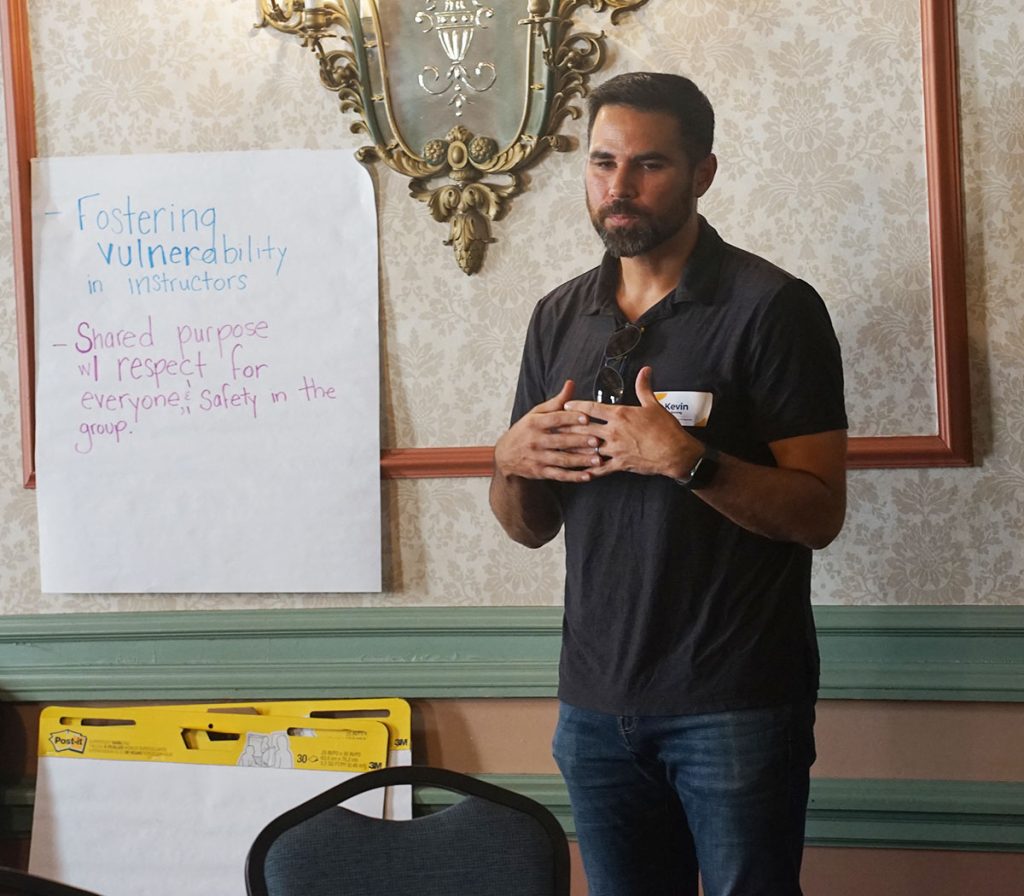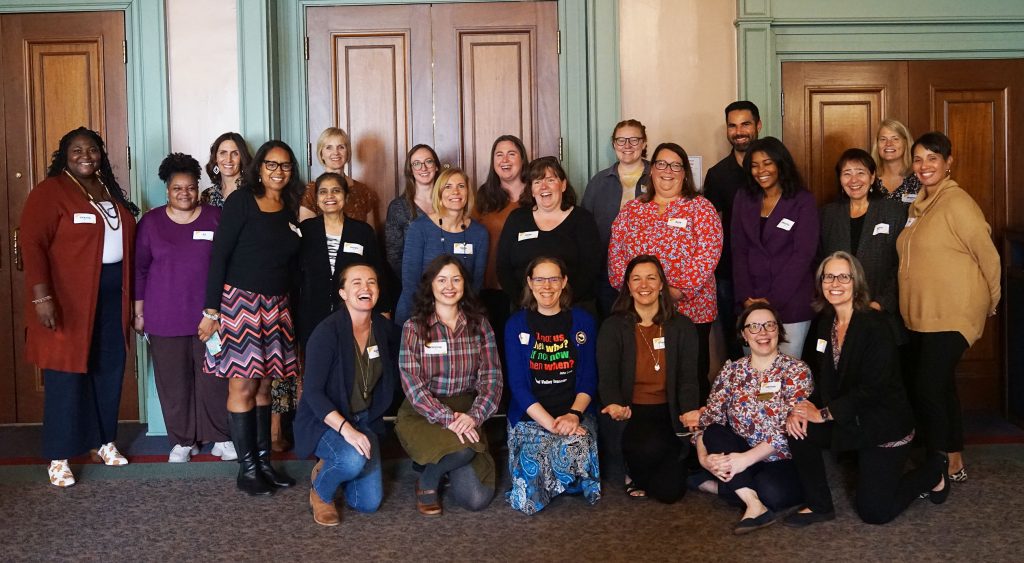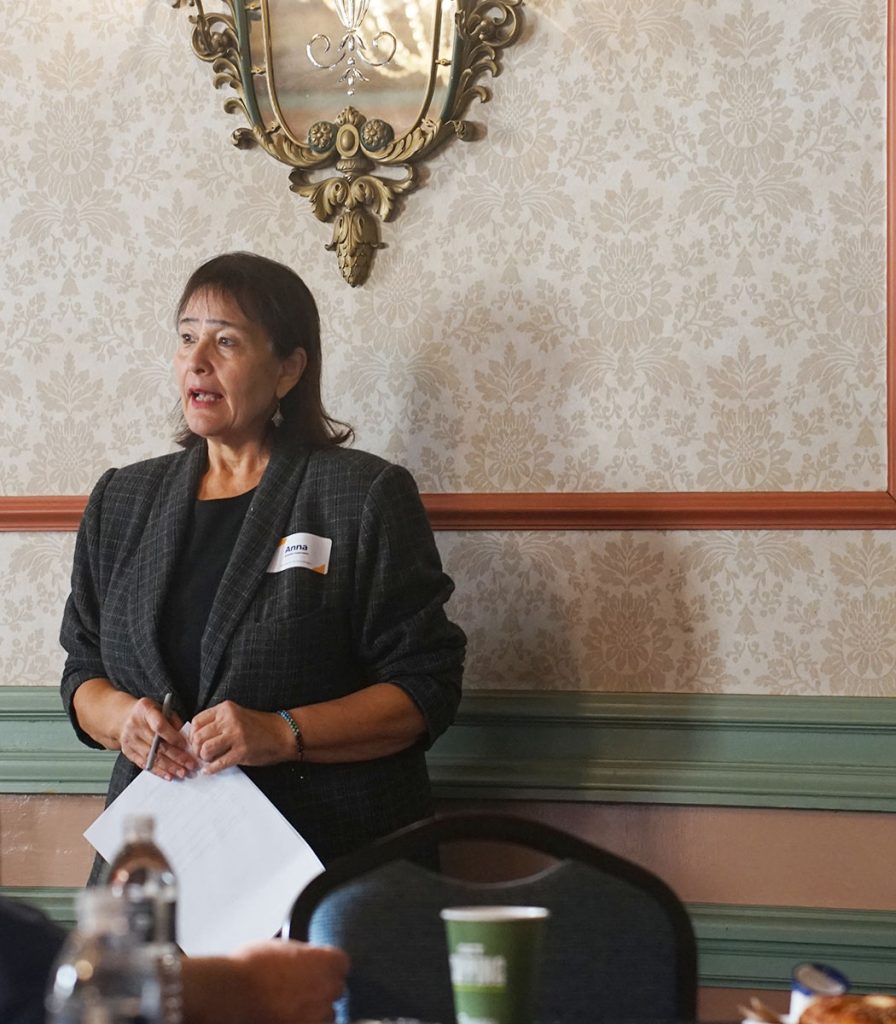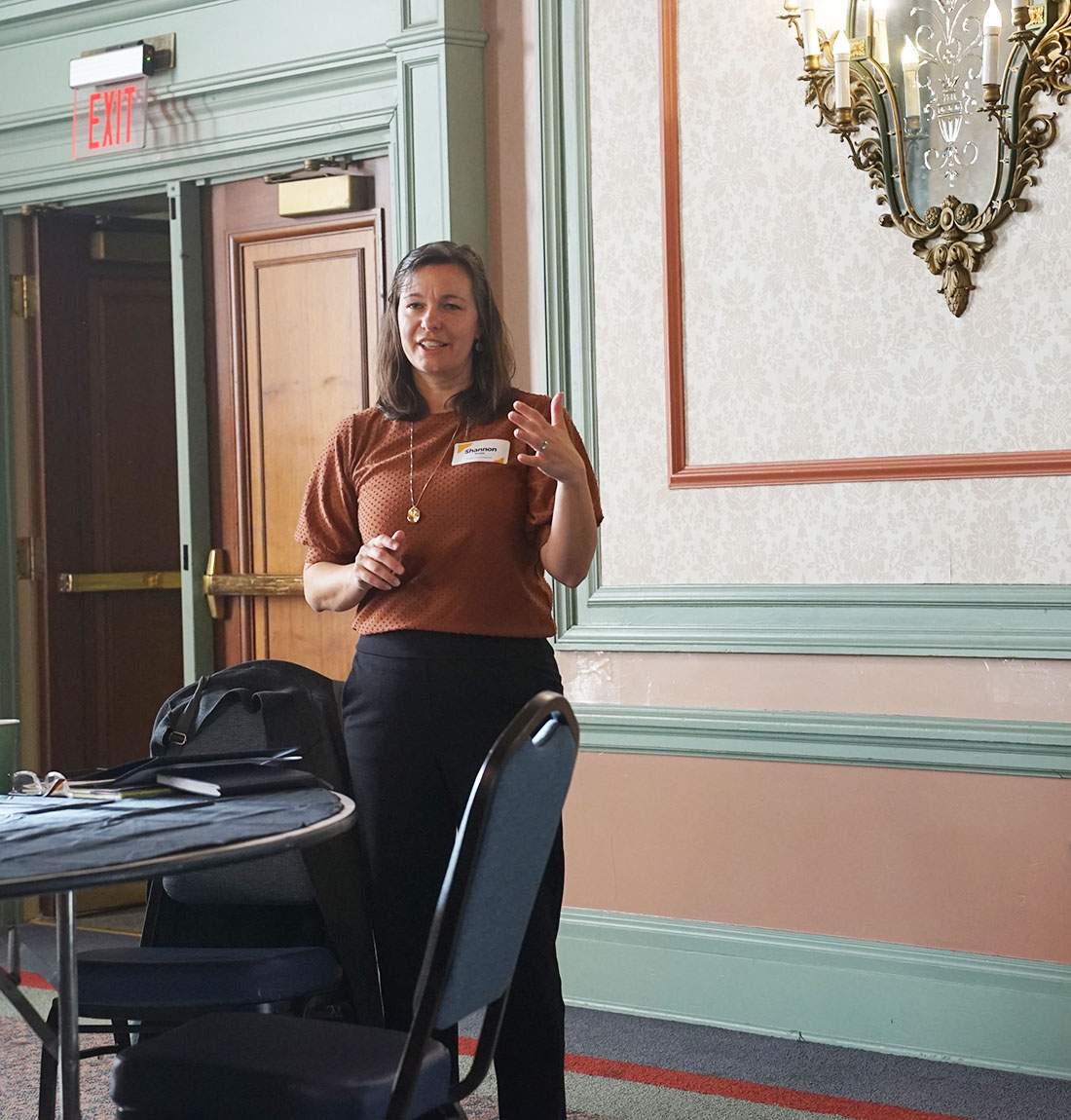
Shannon Wanless remembers a sign in her grandmother’s kitchen that said, ‘if mama ain’t happy, ain’t nobody happy.’ When discussing the impetus behind the University of Pittsburgh’s social–emotional learning (SEL) communities of practices, Wanless pointed to that aphorism.
“I think that’s the whole message,” said Wanless, the director of the Office of Child Development at the University of Pittsburgh. “If the adults are not well, it’s hard for the children to be well.”
Wanless is spearheading a series of Community of Practice meetings and initiatives across Allegheny County that started in October. Each meeting will revolve around an SEL topic and a picture book that reinforces that topic. The initiative is funded and supported by Project SEEKS SES, a grant partnership between the AIU and ACHD that supports school districts in addressing social and emotional health and looks to bolster a local pipeline of professionals to supporting fields.
The project is wide-ranging. Wanless, along with Anna Arlotta-Guerrero, an Associate Professor of Practice at the University of Pittsburgh, lead meetings that bring together faculty and staff from six higher education institutions in the county. Simultaneously, family centers and families, elementary schools, school leaders and early childhood providers around Allegheny County are also having meetings focused around the same SEL topic and book each month.
“They’re all happening in different places in different ways and with different people, but the SEL idea and book is in common, with the idea that we’ll create a movement and unified conversation across our communities,” Wanless said.
“The intention is to bring social-emotional learning to the forefront of conversations in many different spaces and neighborhoods. And although we’re always thinking about child thriving as the outcome, we know that until you really care about adults, and get them thinking about their own social-emotional learning and how they’re providing it for kids, we aren’t really going to move the needle.”
The first higher education meeting happened on October 26th, and brought together staff from six higher education institutions in Allegheny County. The meeting centered around the topic of building a sense of community. Future topics include building relationships, shifting perspectives, expanding awareness, turning self awareness into action and cultivating hope. The final meeting on May 22nd will happen at the AIU office, and will bring together people from all Communities of Practice — higher education professionals, family center staff, families, early childhood educators, leaders, and beyond.
Such wide-ranging, countywide meeting-of-minds seldom happens, but Wanless and her colleagues from the Office of Child Development are trying to change that.
“I have been here for 12 years and I’ve been highly engaged in university-community partnerships, but I’ve never been in a space with so many people from this many Allegheny County universities at once. Working together is how we will have the greatest impact on future generations,” Wanless said.
“We’re all caring about higher education, we all have a similar mission. Being in a Community of Practice is vital, where we say that we have things to learn from each other, we care about each other and we want to get in the habit of learning, reflecting and supporting each other for change.”
Wanless and Arlotta-Guerrero were similarly excited not just by the diverse roles and disciplines of attendees, but the wealth of knowledge and opinions they provided. “There was so much energy around bringing more social-emotional learning to all aspects of our universities,” Wanless said.
“It went super smoothly,” Arlotta-Guerrero added. “I don’t know how many people knew each other — it didn’t seem like too many — but everyone was just so giving to speak and to share and be vulnerable. Everybody really had great ideas.”
When discussing the meeting, Wanless and Arlotta-Guerreo both mentioned that there was a special effort to try to create a sense of community amongst the group. Manifesting those relationships and warm feelings can only help in spreading the initiative of the project, and sparking conversations outside of the meetings.
“We want people to want to make their students and the families they work with and their colleagues also feel a sense of community, too,” Wanless said. “Rather than just conveying information about how to do that — which is pretty common in professional development — we’re also trying to convey a feeling, and that is what will spark optimism and momentum across the county.”
“I’m so excited by the work that Shannon and the Office of Child Development are doing,” said Project SEEKS SES coordinator Shannon Fagan. “The initiative to target and support the social and emotional health of future generations of educators and professionals perfectly captures the essence and intention of Project SEEKS SES. Work like this is crucial in helping further SEL in our county.”
Not all professional development opportunities strive to create a strong sense of community, but Wanless and Arlotta-Guerreo strive to be different, and to push the needle. That’s why the books used in the meetings focus around racial equity, as well. For example, the first set of meetings centered around a book called ‘The Day You Begin’ by Jacqueline Woodson, which centers on celebrating cultural differences. The Office of Child Development’s Literacy and Learning Division, led by Dr. Caitlin Spear and Jennifer Briggs, carefully selected the year of books to be high-quality, racially-affirming, and to convey essential SEL topics.
“Different than all other social and emotional programs that I know that are available in Allegheny County, we are also going to spend the year talking about racial equity and identities. SEL is about building healthy relationships with ourselves and with others, in diverse communities. That cannot be done without facing and disrupting the racial inequities that are pervasive in our community,” Wanless said.
“Because many of us live in segregated neighborhoods and have racial biases, building relationships happens least frequently and naturally across differences. We are trying to highlight all of the differences in identity that make our county so beautiful, and figure out ways to celebrate them and use them as pathways to come together.”
Focusing on these sorts of SEL-based ideas is especially important when it comes to younger children, Wanless said.
“Children are so malleable, there’s so much growth and brain development happening in early childhood,” Wanless said. “Social and emotional development starts from the beginning of life, so when we start then and build those skills at the earliest ages, it will pay off over the long haul. Their trajectory of development shifts and can take off in a way that helps children be more successful academically, with friends, and in handling challenges that come up in life.”
Beyond starting children early on social and emotional development, Wanless called higher education the “perfect incubator” for planting the seeds to spread SEL. By engaging with multiple groups of people at the same time, Wanless is optimistic about the scope of the project, and the opportunity to genuinely spread SEL. “There’s a lot of room to grow SEL in Allegheny County, but there’s a lot of appetite for it, too. Now is the right time to invest in SEL for children and the adults in their lives” Wanless said.
